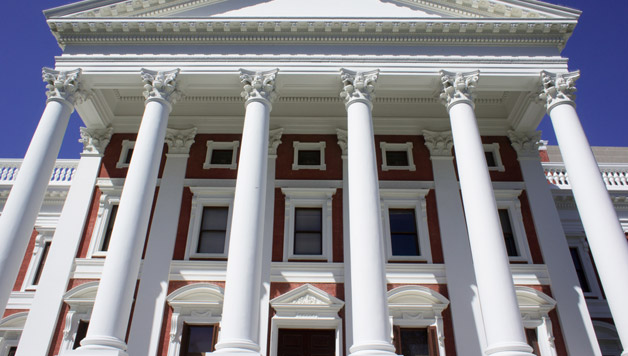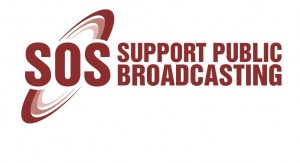
SOS Welcomes Parliament’s Legal Opinion on SABC Board Purging
May 27, 2015Should our public institutions be defending fraudulent conduct and perjury?
September 22, 2015Report: Sector Roundtable on the Film and Publications Board’s Draft Online Regulation Policy

Hosted by: SOS Coalition, Freedom of Expression Institute (FXI), Association for Progressive Communications (APC) and Right 2 Know (R2K)
- WELCOME AND INTRODUCTIONS
Sekoetlane Phamodi (SOS Coordinator) opened the meeting and, on behalf of the four civil society organisations, welcomed representatives from a broad range of organisations, companies and other structures.
He noted the purpose of the Roundtable was to examine the Film and Publication Board’s (FPB’s) Draft Online Regulation Policy (released on 4 March 2015 for public comment) in terms of:
- How the policy is likely to impact on areas in which we operate, and
- What is an appropriate response given that civil society and industry associations have grave concerns about the draft policy, citing unconstitutionality, unlawfulness and unworkability among reasons why it should be reconsidered and / or withdrawn.
He also noted that the programme had been structured to provide a framework for the discussion by Justine Limpitlaw (media lawyer, SOS member and moderator for the Roundtable); four different reflections on the draft policy, a plenary discussion to flesh out the issues, and agreeing a way forward to engage with the draft policy and the FPB. (It is noted that an FPB public stakeholder meeting will take place on Thursday 28 May from 17h00 – 19h00 at the Turbine Hall, 65 Ntemi Piliso Street, Johannesburg).
- FRAMING DISCUSSION
Justine Limpitlaw’s presentation is attached as Annex 2. The main points are highlighted in the body of this Report.
Justine began by making the point that the Draft Online Regulation Policy is difficult, confusing and opaque. She aimed to provide a personal view, as a lawyer, of some of the key problems from a practical, legal and constitutional perspective.
Her presentation focused on:
- Nature of the Draft Online Regulation Policy
- Constitutional Concerns
- ICT Policy Review Process
- Practicality Concerns
- Absence of Authority on the part of the FPB to make the Draft Online Regulation Policy
- Nature of the Draft Internet Regulation Policy
The Draft Online Regulation Policy is very broad with many aspects not falling under the empowering provisions of the legislation establishing the FPB. This is not a draft policy but, in fact, draft regulations. It imposes legal obligations and makes provision for sanctions for non-compliance i.e. it is a subordinate law making exercise. In this respect it seeks to usurp Parliament’s law making role.
- Constitutional concerns
Section 16 of the Constitution protects freedom of expression, including the right to receive and impart information. The Draft Online Regulation Policy almost certainly violates this right in a number of ways. For example:
- Section 5:
- Requires any person who wishes to distribute a film, game or publication (i.e. potentially any message on the Internet) to register as a distributer.
- Imposes obligation of displaying FPB classification rating and logo on digital content.
- Prohits online distributors from distributing digital content unless it has been classified.
- Section 7: Empowers the FPB to order an administrator of an online platform to take down content that the FPB deems potentially harmful and disturbing to children. This is exceptionally drakonian, and begs the question – what does one do with news since it is generally “potentially harmful and disturbing to children”?
- The FPB may regulate Internet Protocol Television (IPTV) broadcasters. This violates section 192 of the Constitution on independent regulation, and is the role of the regulator, ICASA.
- ICT Policy Review Process
The ICT Policy Review process has dealt with appropriate ways of regulating Internet content. This Draft Online Regulation Policy makes no mention of the process and does not seek to align itself with developments. It is an impossible situation to have two separate policy processes driven by two different government departments – Communications (DoC) and Telecommunications & Postal Services (DoTPS).
It was also pointed out that the Department of Justice and Correctional Services is running a process on online child abuse material[1] that started in 2009 (the Cyber Crime and Related Matters Draft Bill– to have child abuse material made a criminal activity, and effectively remove child abuse material from the ambit of the FPB). The Department of Justice has summonsed the DoC to explain what this process is.
- Practicality concerns
The Draft Online Regulation Policy proposes to massively increase the ambit of material to be classified. It will be completely unworkable and impossible to enforce. For example, it will impact on all video content uploaded onto the Internet from South Africa (and possibly anywhere in the world).
- Absence of Authority on the part of the FPB to make the Draft Online Regulation Policy
The Constitution confers national law-making powers upon the legislature. Subordinate law-making powers eg regulation-making must be in accordance with governing legislation. The Film and Publications Act, 1996 (as amended) is the governing legislation:
- The Act requires pre-classification of publication in exceptional circumstances only e.g. particular kinds of sexual conduct, propaganda for war, incitement to violence, and hate speech. Therefore, regulations requiring prior classification for any other kind of publication is ultra vires e. it goes beyond the scope of the FPB’s legislative authority.
- The Act only requires distributors of films and games to register as distributors. Therefore these regulations requiring all distributors of online content to register as distributors of publications is again ultra vires.
- The Act specifically exempts broadcasters from classification obligations of the FPB. Therefore, regulations requiring classification for television films and content, including in respect of IPTV, is ultra vires the Act as ICASA has stated that these are broadcasting services.
- The Act contains no provisions empowering the FPB to engage in auditing, monitoring and enforcement. Therefore, regulations giving such powers to the FPB are ultra vires the Act.
By way of conclusion, Justine said that if all the illegal paragraphs are removed then very few provisions would be left in the document.
It was agreed that it is difficult to know where this Draft Online Regulation Policy is coming from since it feels like a power grab for the Internet as opposed to something the FPB would draft: it falls outside its ambit and goes way beyond its mandate.
In the question and answer session following the presentation the following points were made:
- The FPB has a mandate to deal with Internet issues in very limited and specific circumstances (as mentioned above – in relation to particular kinds of sexual conduct, propaganda for war, incitement to violence, and hate speech). It has no general powers beyond that.
- A great danger is that it enables post-publication censorship.
- It is not clear whether websites are exempt, noting that websites of newspapers are exempt under the Film and Publications Act.
- Passing policy this flawed is bad practice. It undermines the constitutional state and rule of law. It must be withdrawn. A strong message must be sent to the FBP that this policy is unworkable, unconstitutional and unlawful. It must be withdrawn. If it is not withdrawn it must be legally challenged the day it is presented. We need to consider the role of the Human Rights Commission (HRC) as well.
- We should also offer a vision / solution for a better way of drafting an online regulation policy – if possible, looking at costs and resources. We must point to the excellent work emanating from the ICT Policy Review and the Justice Department on children and the Internet.
- REFLECTIONS ON THE DRAFT POLICY
The following four areas were highlighted by means of presentations:
- Internet services – Fortune Mgwili-Sibanda (Google Africa)
- Media freedom – William Bird (Media Monitoring Africa [MMA])
- Broadcasting and ICT convergence – Sekoetlane Phamodi (SOS)
- Reflections on the draft policy by Sexual Orientation and Gender Identity (SOGI) Communities – Sheena Maygenya (Coalition of African Lesbians [CAL]) and Anriette Esterhuysen (APC)
- Internet services
Fortune Mgwili-Sibanda (Google Africa) focused on how the Draft Online Regulation Policy will apply to Google. His presentation is attached as Annex 3. The main points are contained in the body of this Report.
Background:
- April 2014: publication of the FPB’s regulations with updated fees and tariffs. The fees for Internet Service Providers (ISPs) went up from about R200 to R529 pa, and regulations introduced a ‘licensing fee’ of ‘up to’ R750k pa for online distribution.
- September 2014: FPB confirmed in Parliament that legislative amendments are to be made to the FPB Act (1996) in order “to allow for better regulation of online content distribution”.
- Post October 2014: FPB told Parliament that they had now signed online distribution agreements with industry people such as Altech, Apple and Google, although it is not clear what these agreements are.
Rationale:
- Stated objective of the FPB is: “to allow for better regulation of online content distribution” and “to be able to fully regulate the Internet by 2017”.
- The FPB’s current regulatory regime is outdated and needs to keep in pace with changes in the sector:
- Online media content (incl. User Generated Content) is fast becoming the most popular media consumed by people.
- The FPB currently has limited capacity and procedures for the regulation of content distributed online and mobile platforms.
- Current procedures of the FPB focus on submission of physical material which is perused by classifiers prior to reaching a classification decision.
- The FPB is concerned by the impact of unrated content on minors.
The Regulations:
- On a very high level the new proposals require that, to be compliant, all online distributors should:
- Register as an online distributor of content locally.
- Submit all content (eg: all iTunes videos and songs in the case of a company like Apple) to the FPB for classification.
- Pay an online distribution licence fee of up to R750k pa, per service “at the discretion of the executive committee”.
Procedural problems:
- These include:
- There is no sense of how these regulations and fees came about.
- There have been no industry consultations.
- As the FPB has already said, a legislative overhaul is in the making. So why forge ahead with new regulations which may be outdated by the proposed changes to the FPB Act?
- We are not learning from international best practice.
Constitutional problems:
- The policy provides that it is not permissible to distribute digital content in South Africa unless such content is first classified and the classification is displayed on the content. This is not true e.g. the Supreme Court of Appeal in a case between e-tv and the Director of Public Prosecutions (DPP) ruled that “the prior restraint of publication, though occasionally necessary in serious cases, is a drastic interference with freedom of speech and should only be ordered where there is a substantial risk of grave injustice”.
- No definition is given for “community standards” (Guiding Principle 2).
- Is this Policy intended to be read in conjunction with the FPB Bill (2014)?
Financial problems:
- The distribution fee of ‘up to R750k’ pa per service is too exorbitant for a budding online video South African market.
- How did the FPB come about this fee; and is there a ‘sliding scale’? As an administrative body the FPB needs to publish how they have applied their minds to this issue.
- Foreign investment: Apple, Amazon, Google, etc.
- A threat to a healthy ecosystem.
Technical problems:
- Up to 300 hours of content are uploaded on YouTube every minute (up from 48 hours in 2011).
- Most content providers already have their own methods of self-classification. In some cases, these voluntary ratings are more granular (and stricter) than the FPB ratings systems (for example, pornography is not allowed on Microsoft Windows Store, Google Play and YouTube).
- It may not be technically feasible for distributors to carry the FPB’s classification ratings and logo on all their content.
Statistics and Google Flagger Programme:
In 2013 the statistics were that we had 60 trillion web pages with millions added each minute in 159 languages; 30 000 apps uploaded every day on Play Store; 300 hours of YouTube videos uploaded every minute; six billion hours watched and 100 billion searches made per month. By 2017 this will have increased substantially and will simply not be classifiable.
YouTube has Community Guidelines stating what can be uploaded and what is not allowed. It has a reporting system with a 24-hour response to objections, including the action to be taken by Google. It has an ability to check whether one is eligible to watch something in terms of age restrictions or other restrictions such as violation of a county’s constitution. Through this programme it collaborates with experts, non-profit organisations, and regular users on keeping the YouTube community safe.
By way of conclusion:
- We need to keep up with trends, but piecemeal and stand-alone amendments such as put forward by the FPB are NOT the way to do it.
- Instead of ‘protection’, let us focus more on ‘digital literacy’ and empowerment.
- The FPB should consider:
- Stakeholder consultations.
- Self classification models (e.g. Play Store Ratings).
- Industry coalition classification models (g. ICT Coalition in the EU).
- Globally harmonised classification models (g. International Age Rating Coalition (IARC) and Pan European Game Information (PEGI).
- Media freedom
William Bird (MMA) entitled his presentation “Back to the Future” (since the approach seems to take us back to the 1980s – even though the person who drafted it is well-respected, and there is a group of people who support the Draft Online Regulation Policy as is). His presentation is attached as Annex 4. The main points are contained in the body of this Report.
Assumptions:
MMA fully supports the concerns raised in respect of practicality, constitutionality and absence of a progressive, integrated approach.
Foundation Points:
- Online world has amazing possibilities but also hazards and dangers.
- Child porn and child abuse in any form is abhorrent, violates dignity, equality and undermines our nation and humanity.
- We all have a clear responsibility to actively combat child porn in all forms, but child porn is not same as disturbing content.
- Regulation can be very valuable: child porn is a crime.
- The FPB has a critical role to play in informing and educating citizens about content, films, programmes and games, and applying classifications systems.
- Media freedom and children’s rights go hand in hand; they are NOT mutually exclusive.
What is wrong with the Draft Online Regulation Policy:
- There is a virtual absence of a rights’ discourse.
- There is no mention of children’s participation. This constitutes a massive but common omission and denial of their rights, particularly as children constitute 35% of the population.
- Conflation of issues: of reasonable classification, child porn and disturbing content. It is an error to believe that media freedom must be limited to protect children.
- Lack of context of existing systems and efforts – for example the ICT Policy Review and the process underway with the Department of Justice and Constitutional Development.
- The current phrasing allows for an approach of doing things in the name of children to justify conservative, patriarchal fear mongering.
- Its current form is very damaging.
- It could be used to severely undermine children’s rights and media freedom.
- There is very little recognition of the power and benefit of the Internet.
What we need:
- Children’s meaningful participation.
- Progressive, practical, balanced approach that protects and respects children’s rights AND media freedom.
- Look beyond regulation for solutions. A central issue is digital literacy. (The government wants everyone connected by 2020.)
- Broadcasting and ICT convergence
Sekoetlane Phamodi (SOS) said in his input he would not go over ground already covered, and would focus on the implications of regulations for broadcasting and content production – since this is about the regulation of online content – and it is something we agree is required.
Sekoetlane said we need to think about issues such as:
- How we ensure maximum access and free flow of information in a responsible way. The FPB Draft Online Regulation Policy seems to focus on regulation for intrusion as opposed to regulation for access.
- How do we define and regulate the public interest?
- How do we ensure non-monopolies? (For example, Naspers is probably the largest media company on the continent; it has an effective monopoly on online news space, and is growing across the continent.
- How do we ensure that while we regulate online space we are not moralistic and that some communities do not get blocked from engagement with each other.
Key problem areas mentioned by previous inputs:
- The FPB is acting completely out of the scope of its powers. It is being driven by a patriarchal and conservative idea of what morality should look like.
- “Child pornography”. The real issue is that child abuse must be regulated and policed.
- “Community standards”. Who is the community? How is it organised? On what basis is it decided on? When people are denied the ability to organise (such as when same sex conduct is criminalised) the Internet enables community organisation. This right to associate and organise may not be compromised.
- This is an attempt at conservative restriction of online communities with “protecting children from harmful content” as its motivation.
- We are not aligning existing processes and strengthening what we already have.
- This will enable the ability to undertake both pre- and post-publication censorship, and places enormous emphasis on self-classification. And there is no appeals mechanism.
As a final point – we need to be aware of the power dynamics behind this: Joyce Moloi-Moropa (Chair of the ANC’s Media Study Group and Parliament’s Portfolio Committee on Communications) has endorsed this Draft Online Regulation Policy, suggesting that we might not find support from Parliament on this issue. We need to engage with the process in terms of access to information and freedom of expression.
- Reflections on the draft policy from SOGI Communities
Sheena Maygenya (CAL) and Anriette Esterhuysen (APC) both made inputs.
CAL works with sexual orientation and gender issues online – using this avenue because it provides much needed freedom for the LGBTIA community. Sheena said she would focus on the intersection of the Draft Online Regulation Policy and social justice issues.
She noted that South Africa often sets a precedent with its laws for other African countries, and South Africa has a habit of signing on to international human rights instruments and conventions. But it does not seek alignment between those and the development of policy and legislation. By way of example, this Draft Online Regulation Policy contravenes the African Charter, and gives us another avenue to challenge it.
ISPs are sometimes required to spy on clientele. Licenses can be revoked if ISPs do not report to government on use of the Internet.
Also interesting to note, especially for the APC, is the ridiculous amount of power the FPB is giving itself to censor; and its moral undertones are extremely worrying.
Sheena said CAL and the APC will take this conversation back to their multiple stakeholders.
Anriette mentioned four issues that the APC has raised in its submission to the FPB:
- This could set a precedent when it comes to intermediary liability – and could have huge implications for political speech. It would also conflict with existing intermediary liability regulations.
- By regulating the content industry, new barriers for entry (especially of small, local content creators) will be created.
- In terms of the potential for corruption – the Draft Online Regulation Policy as it stands will generate huge revenue for the FPB. There is no sense of how the revenue will be spent, nor who will make that decision.
- Because of the exorbitant fees, the Draft Online Regulation Policy may encourage local content creators to host content off-site rather than in South Africa.
- PLENARY
The plenary took the form of a question and answer session, along with comments. It was moderated by Justine, and focused on the reflections on the Draft Online Regulation Policy provided above. The following was raised:
- The FBP and Online Distribution Agreements. It was stated that the FPB is trying to coerce parties to sign online distribution agreements in terms of this Draft Online Regulation Policy, and is saying some parties have already done so – even though this is possibly untrue. (The context of this comment is that MTN has entered the “video on demand” space.) The Agreement is confusing, and does not link to the Act. MTN is in the process of making a counter proposal with attorneys that will be aligned to the Act.
- How does Google define “community” in its Community Standards? YouTube is basically for user-generated content. It has guidelines for content (see above presentation). The guidelines were written in-house. It was also noted that we don’t want companies to decide for us what is good content.
- What does this mean for satire? Satire has been under threat for a while. This is bad news for satire. No provision has been made for artistic creativity and drama that is recognised by the Film and Publications Act.
- Paying R750k to run an online publication is problematic. This acts against job creation and transformation of the media and broadcasting sector. (It was noted that the R750k fee falls under an existing regulation from 2014 and is already enforceable. It is damaging, and we need to think about how to challenge it. A plea was made by some participants that comment on the R750k should form part of any submissions regarding the Draft Online Regulation Policy.)
- Conflation of “child pornography” and “inappropriate content”.
- Child “abuse” is a more appropriate term than “pornography” and should be used in its place, where possible.
- ICT Policy Review recommendations regarding audio visual content (which includes the Internet. The ICT Policy Review panel has put together recommendations to the Ministry of Telecommunications and Postal Services for the White Paper. There are really good ideas for self-regulation, and alignment with existing laws and the Constitution. For example, the ICT Policy Review panel wants to redefine what is meant by broadcasting; recognises the need to protect Internet content intermediaries, and the need to protect children.
- The Draft Online Regulation Policy uses “content distributors” and “provider” interchangeably. The consequence is that anyone who wants to distribute YouTube clips will have to register as a content distributor.
- SANEF report. Izak Minaar undertook to make this report available to SOS for distribution to participants.
- TOWARDS A PROCESS FOR ENGAGEMENT
As noted at the start of the meeting, the FPB will hold a Public Hearing on Thursday 28 May from 17h00 – 19h00. The four host organisations will meet with community representatives and other interested organisations and individuals for a public preparatory meeting at 13h30 on 28 May, and will move from that meeting to the Public Hearing. It will be combined with a picket. All participants are encouraged to join the public preparatory meeting and attend the Public Hearing.
- CLOSURE AND THANKS
Zororo Mavindidze (FXI) thanked all for their attendance at what had proved to be a very useful discussion forum and platform for planning action. He expressed a hope that participants would continue to use the formal and informal processes and channels. He also thanked those who put the event together (with especial thanks to Lweendo Hamukoma and Yolande Mlonzi) and grant-making partners.
[1] Commonly called child pornography which is a misnomer as pornography involves consenting adults in documented sex acts for adult consumption.
Annex 1 Attendance Register (21-05-15)
Annex 2 Justine Limpitlaw (21-05-15)
Annex 3 Fortune Mgwili-Sibanda (21-05-15)



